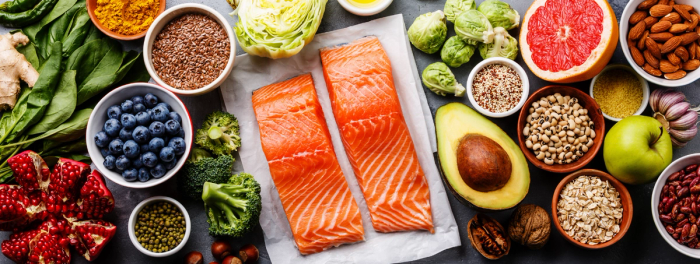question
what type of diet should i follow to ease arthritis symptoms?
Managing arthritis symptoms through diet can be a valuable approach. While there isn't a one-size-fits-all diet specifically for arthritis, certain dietary patterns have shown promise in reducing inflammation and improving overall wellbeing. Here’s a comprehensive overview based on the information in my sources.
Key Principles of an Arthritis-Friendly Diet
-
Focus on Anti-Inflammatory Foods:
- Incorporate foods rich in omega-3 fatty acids, such as fatty fish (like salmon, mackerel, and sardines), flaxseeds, chia seeds, and walnuts. These can help reduce inflammation and alleviate pain.
- Include a variety of colourful fruits and vegetables, which are high in antioxidants. These nutrients combat oxidative stress and support joint health.
-
Embrace Whole Grains:
- Opt for whole grains over refined grains. Foods like brown rice, quinoa, and whole grain bread can provide essential nutrients and fibre, which may help in managing weight and inflammation.
-
Healthy Fats:
- Replace saturated and trans fats with healthier options. Olive oil and avocados are excellent sources of healthy fats that can support heart health and may help manage arthritis symptoms.
-
Limit Processed Foods:
- Reduce intake of processed meats, sugary foods, and refined carbohydrates. These can contribute to inflammation and may worsen arthritis symptoms.
-
Stay Hydrated:
- Drink plenty of water throughout the day. Staying hydrated is crucial for joint lubrication and overall health.
Dietary Patterns to Consider
-
Mediterranean Diet:
- This diet is rich in plant-based foods, including fruits, vegetables, legumes, nuts, and whole grains. It also includes healthy fats from olive oil and moderate amounts of fish and lean meats.
- Research suggests that the Mediterranean diet may help manage arthritis symptoms due to its anti-inflammatory properties.
-
Plant-Based Diet:
- A plant-based diet focuses primarily on foods from plant sources, such as fruits, vegetables, whole grains, nuts, and legumes. While this diet can increase your intake of vitamins and lower fat levels, it’s essential to ensure you’re getting enough nutrients like iron and vitamin B12, which can be lacking in strict vegetarian diets.
-
DASH Diet:
- Originally designed to lower blood pressure, the DASH diet includes a variety of foods from all food groups, emphasising fruits, vegetables, whole grains, and low-fat dairy. Some evidence suggests it may also help reduce inflammation.
Foods to Avoid
While there is limited evidence on specific foods that universally affect arthritis, some individuals report improvements by avoiding certain items. Here are some considerations:
- Processed Meats and Sugars: Reducing these may be beneficial for some people.
- Nightshade Vegetables: Foods like tomatoes, potatoes, and eggplants have been suggested by some to exacerbate symptoms, but there is no strong evidence to support this.
- Dairy Products: While dairy is a good source of calcium, some people may find it aggravates their symptoms. It’s best to monitor your own reactions.
- High-Purine Foods: For those with gout, avoiding foods high in purines (like certain seafood and red meats) can help prevent flare-ups.
Personalisation is Key
It’s important to remember that arthritis affects everyone differently. What works for one person may not work for another. Here are some tips for personalising your diet:
- Keep a Food Diary: Track what you eat and how it affects your symptoms. This can help identify any potential trigger foods.
- Consult a Dietitian: A registered dietitian can provide tailored advice based on your individual health needs and dietary preferences. They can help ensure you’re meeting your nutritional requirements while managing your arthritis.
Conclusion
While there is no definitive diet that can cure arthritis, adopting a healthy, balanced diet can significantly impact your symptoms and overall health. Focus on incorporating anti-inflammatory foods, staying hydrated, and maintaining a balanced intake of nutrients.
If you have specific dietary concerns or need personalised advice, I encourage you to consult with a healthcare professional or a dietitian. They can help you create a plan that suits your individual needs and supports your journey in managing arthritis.
This information is not a substitute for professional medical advice, diagnosis or treatment. Always consult a registered healthcare professional about matters that affect your health. Clara uses artificial intelligence to generate general information for personal educational purposes only, not intended to be a management plan and it may contain errors, inaccuracies or may oversimplify concepts.






